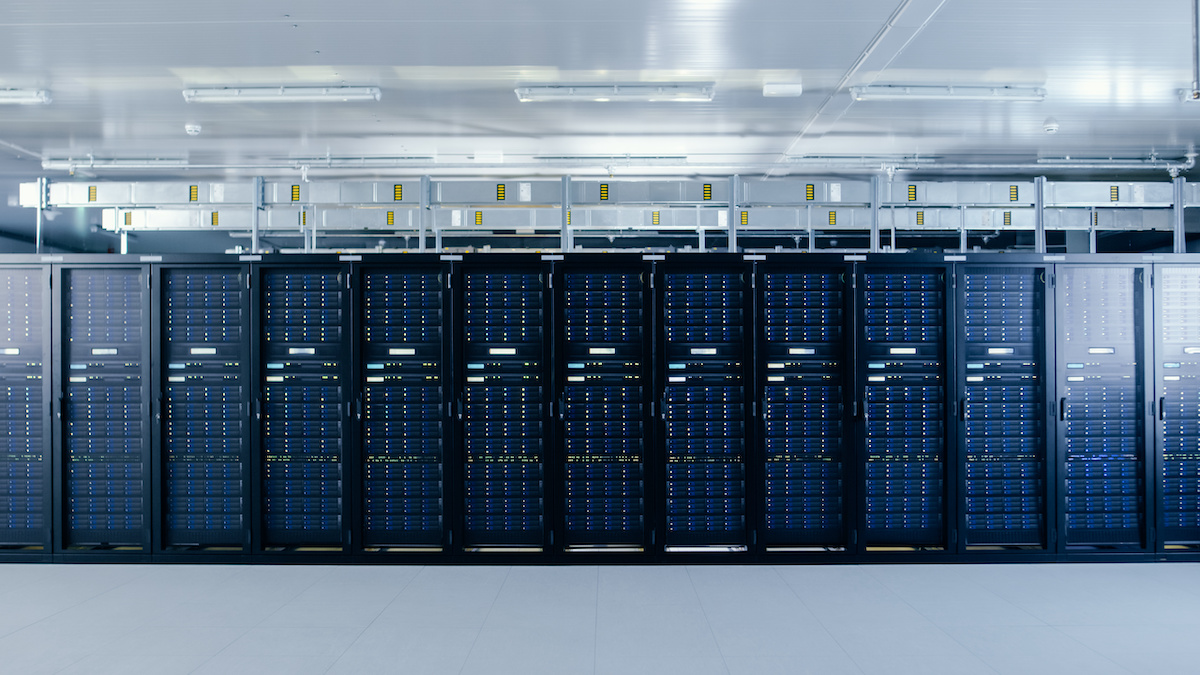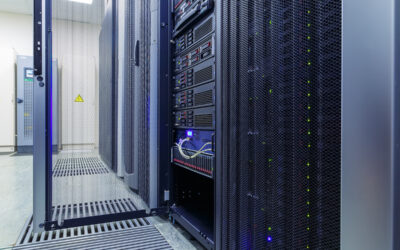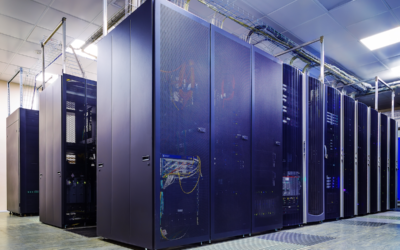The Evolution of Colocation Data Centers17 min read

As the world’s IT needs have shifted, so too have data centers evolved to serve them. The industry has demonstrated this flexibility throughout its entire history, but few periods have been as transformative as the past few years. Data centers, especially colocation sites, have undergone a substantial transformation in a relatively short span.
The shift away from traditional, on-premise data centers was inevitable. In 2018, Gartner estimated 80% of enterprises would shut down their conventional facilities by 2025. As corporate IT needs accelerated and shifted drastically through 2019 and 2020, that change may come sooner than expected.
Colocation has grown in more ways than just adoption numbers, too. Companies have greater, different needs, and colocation sites (colos) have adapted accordingly. Here’s a closer look.
Colos as a Primary Facility
In the past, colos have typically served as an auxiliary site while on-premise data centers hosted mission-critical functions. As more companies have realized the benefits of the cloud, that’s no longer the case. Now, 59% of surveyed organizations plan to be mostly or entirely on the cloud within 18 months, a 21% rise from current numbers.
On-premise data centers are becoming a thing of the past, and colos are a crucial part of that transition for many organizations. Colocation gives businesses access to higher-end computing and cooling technologies for less than it would cost to have the same in-house. As the COVID-19 pandemic limited resources and raised the demand for flexibility, that advantage became hard to ignore.
Colocation is becoming less of a backup solution and more of a primary resource. This trend will likely last past the pandemic as companies continue seeking affordable scalability. The extremes of 2020 merely served as a catalyst, speeding the inevitable transition.
Colocation as a Security Solution
Cybersecurity has become an increasingly crucial area of focus for businesses in the past few years. Large-scale data breaches increased by 273% in the first quarter of 2020 alone. As many companies also shifted to remote work, their older, traditional security solutions suddenly became inadequate.
Enabling secure and convenient remote access to company resources is the most important concern for work-from-home arrangements, according to experts. Data center colocation provides a solution that meets both needs. As off-premise facilities, they’re remotely accessible by design, and colocation vendors typically offer 24/7 monitoring and other security resources.
Despite the rising need for robust cybersecurity, COVID-related losses lead many companies to reduce their IT budget. Since colos provide both a data hosting and security solution, they stand as a budget-friendly option for companies in need. As a result, more businesses will turn to colocation as a cybersecurity resource, not just a storage solution.
Rising Multi-Cloud Adoption
Many companies have used colocation as a stepping stone between on-premise data centers and dedicated cloud vendors in previous years. Cloud providers like Microsoft and Amazon have their unique strengths and weaknesses, and businesses went with whatever best fit their needs. As enterprise IT needs have grown more urgent and complex, though, multi-cloud approaches have risen.
According to a recent Flexera report, 93% of enterprises today have a multi-cloud strategy. Businesses use two public clouds and two private clouds on average. This strategy isn’t always possible with vendor-specific data centers and could quickly get expensive or inconvenient. However, colocation sites as vendor-neutral centers provide the ideal solution for a multi-cloud approach.
Corporate IT culture, like many other facets of business today, has shifted toward hyper-personalized solutions. Instead of compromising with a single vendor, companies now prefer to use different clouds for different processes, taking advantage of their individual strengths. Consequently, more organizations are turning to data center colocation to sustain this trend.
Increased Flexibility
Finally, data center colocation is becoming increasingly personalized. Colos are adapting to provide unique, tailored solutions for their clients instead of all-in-one packages. Since many companies turn to colos for flexibility anyway, colocation is becoming more flexible within itself.
Some companies still want a colo to provide storage, security, power and cooling solutions, but many would rather mix and match these services. As businesses have had to transform amid the pandemic and budgets have tightened, individual needs have become more diverse. Colos have become more flexible and personalized in response.
Just as companies turn to multiple cloud vendors to meet their unique needs, so they seek individualized solutions from colos. By enabling this hyper-customization, colocation sites become increasingly valuable to today’s ever-diversifying IT landscape.
Data Center Colocation Is Adapting to Meet New Needs
In the face of the COVID-19 pandemic and shifting company cultures, businesses have had to adjust their IT strategies. As a result, data center colocation has likewise shifted to meet these changing demands. Colos are growing, both in terms of adoption and use cases.
Data center colocation was bound to increase, but it has sped at an unpredictably high rate in the last few years. As it has grown upward, it’s also grown outward, becoming more flexible and meeting various new needs. The industry is transforming into an entirely new animal, and this will likely continue as IT culture itself keeps shifting.
Real-time monitoring, data-driven optimization.
Immersive software, innovative sensors and expert thermal services to monitor,
manage, and maximize the power and cooling infrastructure for critical
data center environments.
Real-time monitoring, data-driven optimization.
Immersive software, innovative sensors and expert thermal services to monitor, manage, and maximize the power and cooling infrastructure for critical data center environments.

Devin Partida
Editor-in-Chief at ReHack
Devin Partida writes about data, cybersecurity and smart tech for ReHack.com, where she is also the Editor-in-Chief.







Great post, Devin! Colocation data centers have become more important after the Covid-19 pandemic. Another benefit of these centers is that you can buy exactly what you need and save on unnecessary additional expenditures. If you require more space, bandwidth, or power, most data centers arrange that on a simple phone call or email.